Crude oil has a new buddy – the S&P 500. Less than 2 months after the oil entered the bear market territory on Nov 8, the S&P 500 – the American stock market index based on the market capitalizations of 500 large companies – joins the club on Christmas Eve. On Monday, just before the Christmas, the S&P 500 dropped 20% from its 52-week high.
As predicted (and feared), the stock market indexes are on track for their worst December performances since the 1931 Great Depression. Amazingly, when the crude entered its bear market, the American crude oil was trading at US$60 a barrel. Today, you can bring home a barrel of the black gold for US$42. Essentially, the oil has dropped about 40% off its peak in October.
Crude oil is one of the best currencies to estimate the global economy going forward. A slowing economy means less appetite for oil. Hence, the continuing collapse in oil prices signals that investors are worried about a 2019 recession. Last week alone, U.S. West Texas Intermediate crude tumbled 11%, posting its worst weekly performance in nearly 3 years.
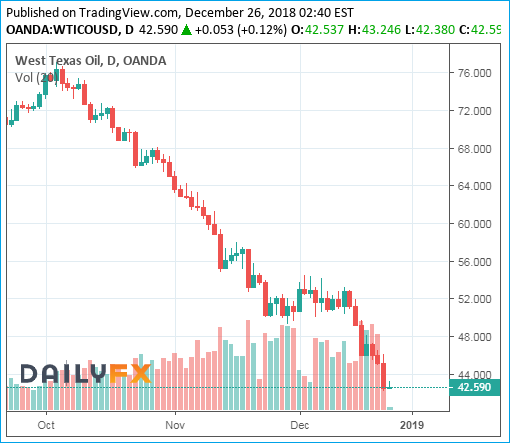
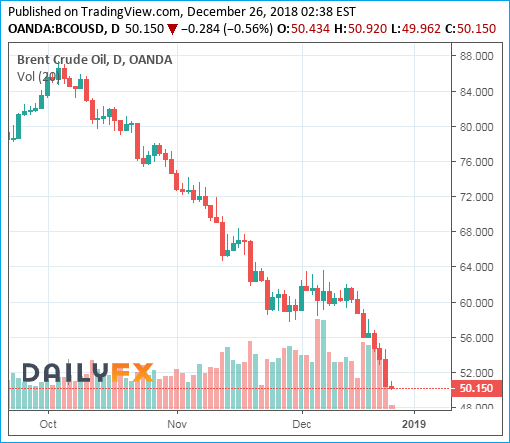
On Monday, the Christmas Eve, the American WTI fell below the US$45 critical level for the first time since July 2017, to about US$42 a barrel, just inches from the psychological US$40 a barrel. Helima Croft, global head of commodity strategy at RBC Capital Markets, said – “I think what we’re seeing in oil is a big, big concern for 2019 about a recession.”
While it’s true that surging oil production from the United States, Saudi Arabia and Russia is one factor behind the sell-off, the depth of the pullback indicates that expectations for slower economic growth is the ultimate reason. Forget the 1.2 million barrels per day production cut promised by OPEC cartel leader Saudi Arabia, Russia and other oil producers.
The key is still the Chinese, whose demand for oil is waning as a result of the trade war with Trump administration. It won’t matter to the U.S. as the world’s biggest oil producer if their oil cannot find buyers. The U.S.-Chinese trade tensions are causing finance executives to lose faith in China’s economic growth, which has been the biggest consumer of practically everything.
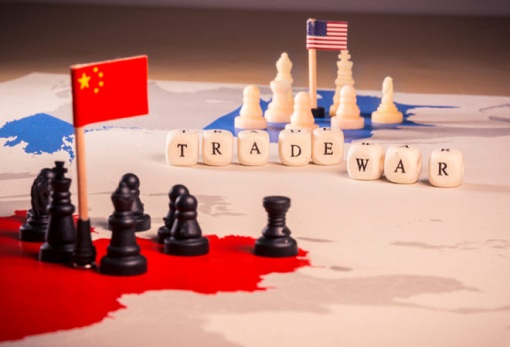
As the S&P 500 entered a bear market, the DJIA (Dow Jones Industrial Average) dropped by 653 points on Monday in volatile trading, falling below 22,000. The Dow sank more than 2%, and then recovered nearly all of the day’s losses, before again falling more than 2% – suggesting that investors were very pessimistic about keeping shares and would sell at every opportunity.
As feared, the stunt pulled by Treasury Secretary Steven Mnuchin, calling the CEOs of the six largest U.S. banks on Sunday while vacationing to ask about liquidity, has backfired. It was a dumb move to answer a question that nobody was asking in the first place. Mnuchin’s statement assured the public that they had not been having liquidity problems – is itself a problem.
What was the Treasury Secretary thinking? Has he gone crazy? First, it could be Mnuchin’s cheap drama to show his boss, President Trump, that he was doing something, anything, even while holidaying in Mexico. Perhaps he was afraid of getting fired. Second, Mnuchin could be trying to crash the market – deliberately – to put pressure on the Fed not to raise rates anymore.
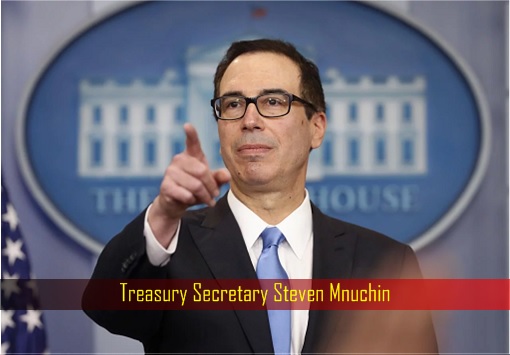
Third, Mnuchin has some troubling insider knowledge, and he wanted to tell all and sundry that he is aware and in charge of the situation. His assurance that the nation’s six largest banks had ample credit was probably a pre-emptive strike – forcing those words into the throat of the bankers, and avoid future responsibility if things get really nasty.
Regardless of the reasons, it appears Treasury Secretary Steven Mnuchin has done more harm than good with his half-baked stunt. The global markets have reacted so badly that Japan’s Nikkei 225 tumbles into a bear market on Tuesday, after the stock market fell by a jaw-dropping 5%, hitting its lowest point since May 2017 – down over 21% from highs reached in early October.
Trump’s tweet that the Federal Reserve was the U.S. economy’s “only problem” didn’t go well with the Wall Street. The financial markets are more concerned about a president who wants control over the Fed than a potentially slowing economy itself. As a result, all 11 sectors of the S&P 500 are now negative in December.
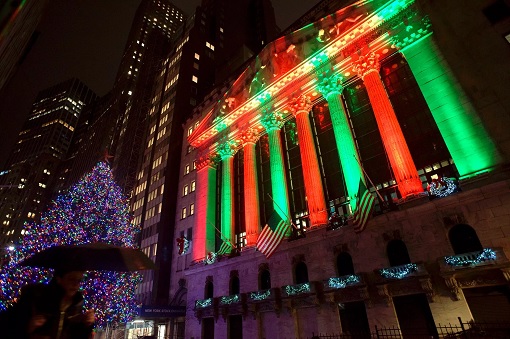
Leading the worst sector is energy (down 31.24% from the 52-week high), follows by materials (26.15%), financials (26.09%), industrials (25.23%), tech (24.13%), consumer discretionary (22.99%) and communication services (22.61%). All these sectors are essentially in bear territory. Can you see how the financial sector is already in the bear market?
And here’s why you should worry about a bear market. A bear market, happens when a 20% decline or more, is a sign that pessimism overwhelms the stock market. And pessimism tends to prevail. According to Goldman Sachs, since World War II, bear markets on average have fallen 30.4% and have lasted 13 months. This means the S&P 500 could have another 10% to fall.
Even after reaching the 30% threshold in a typical bear market, assuming it would take 13 months of uncertainties, it would take stocks an average of 22 months to recover. Heck, even if this is not a recession, but just a “correction”, which is defined by at least a 10% drop from a recent high, it would last at least 4 months – if you’re lucky.
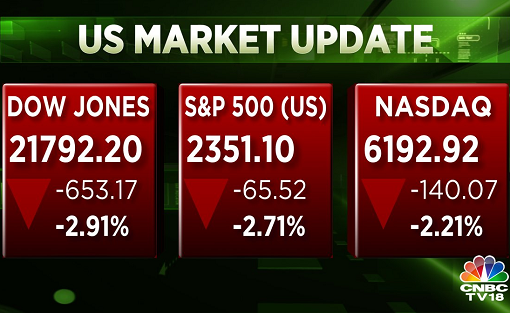
Other Articles That May Interest You …
- Panic In Washington – Treasury Secretary Calls Top Bankers To Check Liquidity, While On Vacation
- Get Ready For $40 Oil – Crude Drops Like A Rock, Here’s Why America Holds The Key To Oil Prices
- 2019 Recession May Have Started – December Stock Market Will Be The Worst Since 1931 Great Depression
- President Trump’s Trade War Strategy Against China Isn’t Working – It Gets Worse!!
- BOOM!! U.S. Now World’s Largest Oil Producer – Oil Lost 20% In A Month, Could Drop To $40 In Bear Market
- China’s Latest Strategy Against Trump’s Trade War May Be Based On Sun Tzu’s Art Of War – Stays Quiet!!
- Get Ready For 4 Rate Hikes This Year – New Fed Boss Powell Ain’t Afraid Of Stock Crash
- 30 Investing Tips & Tricks You Won’t Learn At School

|
|
December 26th, 2018 by financetwitter
|


|

|

|

|

|

|




























Comments
Add your comment now.
Leave a Reply